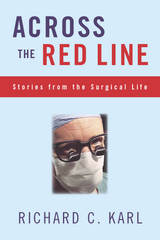
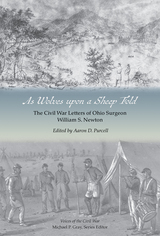
William S. Newton (1823–1882) served the Union primarily as an assistant surgeon with the 91st Ohio Volunteer Infantry, but also spent a few months as acting surgeon with the 2nd Virginia Cavalry (US). Toward the end of the war, he was promoted to surgeon for the 193rd Ohio Volunteer Infantry. Newton’s units fought in the Appalachian Highlands, mostly in Virginia and West Virginia. He treated wounded soldiers after significant battles including Opequon and Cedar Creek. In May 1864, following the Battle of Cloyd’s Mountain, John Hunt Morgan’s Raiders captured Newton and other medical personnel. After three weeks, Newton and his fellow prisoners were given the option of either treating Confederate soldiers or going to Libby Prison; they chose the latter. Newton spent only three days at Libby Prison before being released, but the experience took a significant toll on his health.
The letters in this volume, addressed mostly to Newton’s wife, Frances, provide a window into fighting in the Appalachian borderlands, where the differences between battle, guerilla warfare, and occupation were often blurred. As a noncombatant, the doctor observed life beyond troop movements and the brutality of war. Newton’s detailed letters cover his living quarters, race relations, transportation and communication, the comfort of a good meal, and the antics of his teenage son Ned. This book provides new insights into the medical and social history of the war, the war in Western Virginia, local and regional history, the perspective of a noncombatant, life on the home front, and the porous lines between home and battlefront.
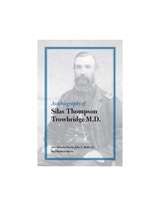
Autobiography of Silas Thompson Trowbridge M.D. is a remarkable account of nineteenth-century medicine, politics, and personal life that recovers the captivating experiences of a Civil War–era regimental surgeon who was also a president of the Illinois State Medical Society and a United States consul in Mexico. First published in 1872 by Trowbridge’s family and even printed on a family-owned press, only a handful of copies of the initial publication survive. In this first paperback edition, Trowbridge’s memoirs are reprinted as they originally appeared.
Indiana-born Trowbridge moved to Illinois in his early twenties. A teacher by trade, he continued that career while he began the study of medicine, eventually starting a medical practice near New Castle, which he later moved to Decatur. Though respected by the community, Trowbridge lacked an authentic medical degree, so he enrolled in a four-month course of medical lectures at Rush Medical College in Chicago. Autobiography describes the atmosphere of the medical school and delineates Trowbridge’s opinions on the lack of quality control in medical colleges of the day.
Although three years of study and two annual terms of sixteen weeks were the actual requirements for the degree, Trowbridge was allowed to graduate after a single course of lectures and completion of a twenty-page thesis due to his previous experience. He then married a young widow and returned to Decatur, where he began a partnership with two local physicians and inaugurated a county medical society. In addition to practicing medicine, he was known and respected for regulating it, too, having supported legislation that would legalize dissection and prohibit incompetent persons from practicing medicine.
In 1861, Trowbridge began service as a surgeon of the 8th Illinois Volunteer Infantry commanded by Colonel Richard J. Oglesby. Autobiography describes his experiences beginning in Cairo, Illinois, where the infantry was involved in several expeditions and where Trowbridge made his “debut at the operating table.” Revealing a litany of surgical duties, replete with gruesome details, these war-time recollections provide a unique perspective on medical practices of the day. Likewise, his commentaries on political issues and his descriptions of combat serve to correct some of the early written histories of the war’s great battles.
After receiving an honorable discharge in 1864, Trowbridge returned to Decatur to resume his partnership with Dr. W. J. Chenoweth and devote himself to surgery. His reminiscences recount several difficult surgeries, his efforts to reorganize the county medical society (which had collapsed during the war), and his communications to the Illinois legislature to set higher qualifications for practicing physicians. He was later elected president of the Illinois State Medical Society and appointed by President Grant United States Consul to Vera Cruz on the eastern coast of Mexico, where he studied and challenged the treatment of yellow fever. The autobiography ends in 1874 with a six-day family vacation and the marriage of his daughter to a merchant of Vera Cruz.
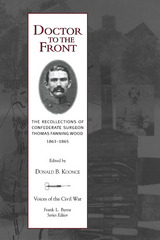
The Civil War was a tragic conflict that destroyed many lives, but for those trying to save lives the tragedy was often compounded. Military doctors labored through the smoke of battle where impossible conditions and fear of infection often forced them to resort to amputation, and most operations were performed without painkillers. Thomas Fanning Wood recorded his wartime experiences as a Confederate Army surgeon, and his recollections of those events allow us to hear a distinct voice of the Civil War.
As a young soldier recovering from fever at a Richmond hospital, Wood developed an interest in medicine that was encouraged by a doctor who steered him toward medical training. After only eight months of study he was made an assistant surgeon in the Third North Carolina Regiment. His narrative—drawn from his memoirs, letters from the front, and articles written for his hometown newspaper—presents a poignant and sometimes horrifying picture of what the Civil War physician had to face both under battlefield conditions and in urban hospitals.
Wood himself spent much of his time at the front, and his vivid narrative describes both a doctor’s daily activities and the campaigns he witnessed. He was present at many of the war’s major engagements: he was near Stonewall Jackson when the general fell at Chancellorsville, manned a field dressing station at the foot of Culp’s Hill at Gettysburg, and was one of the few survivors of the Union attack on the "mule shoe" at Spotsylvania when his entire division was wiped out. Wood’s account also lends new insight into Jubal Early’s 1864 campaigns in the Shenandoah Valley and against Washington.
With its observations of medical care and training not found in standard histories of the war—including a description of the examination required to become an assistant surgeon—Doctor to the Front offers a unique human perspective on the Civil War. With their additional descriptions of key figures and events, Wood’s recollections combine historical significance and human interest to show us another side of that terrible conflict.
The Author: Donald B. Koonce is the great-grandson of Thomas Fanning Wood and has served on the Board of Directors of the South Carolina Historical Society and the Historic Greenville Foundation. He is president of the Koonce Group, Inc., an award-winning communications company whose productions include Daybreak at the Cowpens, a documentary for the National Park Service.
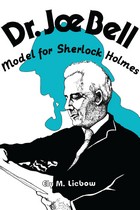
A distinguished physician and professor of medicine at Edinburgh University, and a forensic expert for the British Crown, Joseph Bell was well known for his remarkable powers of observation and deduction. In what would become true Sherlockian fashion, he had the ability to deduce facts about his patients from otherwise unremarkable details. In one instance recounted by Arthur Conan Doyle himself—and similar to Sherlock Holmes's own observations in "The Greek Interpreter"—Bell took little time to determine that one of his patients had recently served in the army, a non-commissioned officer discharged from his Highland regiment stationed in Barbados:
“The man was a respectful man, but did not remove his hat. They do not in the army, but he would have learned civilian ways had he been long discharged. He has an air of authority and he is obviously Scottish. As to Barbados, his complaint is elephantitis, which is West Indian and not British.”
Based on extensive research into the life of Bell and including tantalizing accounts of the connections between Bell and Conan Doyle, this biography is required reading for anyone interested in Victorian medicine, in the history of detective fiction, and in Sherlock Holmes and Dr. Watson.
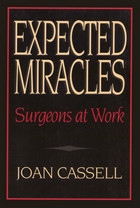
Expected Miracles explores the world of surgeons from their own perspective—how they perceive themselves, their work, colleagues, and communities. Recognizing that surgery is an art, a craft, a science, and a business, Joan Cassell offers, through poignant, painful, and thrilling descriptions, a vivid portrayal of the culture of surgery.
Cassell has entered a realm where laypersons are usually horizontal, naked, and anesthetized. Using the central metaphor of the surgical "miracle," she illuminates the drama of the operating room, where surgeons and patients alike expect heroic performance. She takes us backstage to overhear conversations about patients, families, and colleagues, observe operations, eavesdrop on gossip about surgeons’ performances, and examine the values, behavior, and misbehavior of surgeons at work.
Said one Chief of Surgery, "You couldn’t have a good surgeon who didn’t believe in the concept of the Hero." Following this lead, Cassell explores the heroic temperament of those who perform surgical "miracles" and finds that the demands and pressures of surgical practice require traits that in other fields, or in personal interactions, are often regarded as undesirable. She observes, "surgeons must tread a fine line between courage and recklessness, confidence and hubris, a positive attitude and a magical one." This delicate balance and frequent imbalance is portrayed through several character sketches. She contrasts the caring attention and technical mastery of The Exemplary Surgeon with the theatrical posturing of The Prima Donna and the slick showiness and questionable morals of The Sleazy Surgeon.
She also identifies the attributes that surgeons admire in each other. They believe that only peers can really evaluate each other, and, while doctors might not speak negatively about colleagues in public, the community of surgeons exerts considerable pressure on its members to perform competently.
Unlike "doctor-bashing" chronicles, Expected Miracles seeks to understand the charismatic authority of surgeons, its instability, and its price-to surgeons and to patients.
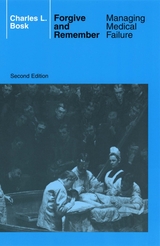
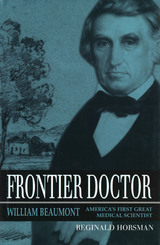
In Frontier Doctor, Reginald Horsman provides the first modern, scholarly biography of a colorful backwoods doctor whose pioneering research on human digestion gained him international renown as a physiologist. Before William Beaumont's work, there was still considerable controversy as to the nature of human digestion; his research established beyond a doubt that digestion is a chemical process.
Beaumont received his medical training as an apprentice in a small town in Vermont and served as a surgeon's mate in the War of 1812. After the war, he practiced in Plattsburgh, New York, before making his career as an army surgeon. His chance for fame came in 1822, when he was serving at the lonely post of Fort Mackinac in Michigan Territory. A Canadian voyageur--Alexis St. Martin--was accidentally shot in the stomach at close range, and his wound healed in such a way as to leave a permanent opening. This enabled Beaumont to insert food directly into the stomach, to siphon gastric juice, and to experiment on the process of digestion both inside and outside the stomach.
Because Beaumont had considerable difficulty in persuading St. Martin to stay with him so he could continue his research, his study was carried out sporadically over a number of years. In the early 1830s, with the support of Joseph Lovell, the surgeon general of the army, Beaumont and St. Martin went to the East Coast, where additional experiments were carried out. In 1833, Beaumont published Experiments and Observations on the Gastric Juice and the Physiology of Digestion, a book based upon his research on St. Martin and the work upon which his reputation primarily rests. His observations revealed more about digestion in the human stomach than had ever before been known, and his work was immediately praised in both the United States and Europe.
After he left the army, Beaumont established a successful private practice in St. Louis, Missouri, where he spent the latter part of his life. Beaumont, a fascinating, argumentative character, was often engaged in public controversy. He was also good friends with several notable men, including the young Robert E. Lee.
Frontier Doctor sheds welcome new light on the state of medicine both inside and outside the army in the early nineteenth century and provides absorbing information on the early experi-ments that set the research into human digestion irrevocably on the right course.
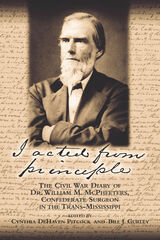
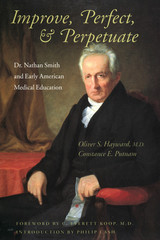

In Lost in Transition: Removing, Resettling, and Renewing Appalachia, Aaron D. Purcell presents a thematic and chronological exploration of twentieth-century removal and resettlement projects across southern Appalachia. The book shares complex stories of loss and recollection that have grown and evolved over time.
This edited volume contains seven case studies of public land removal actions in Virginia, Kentucky, the Carolinas, and Tennessee from the 1930s through the 1960s. Some of the removals include the Tennessee Valley Authority and the Norris Basin, Shenandoah National Park and the New River, the Great Smoky Mountains National Park, and the Keowee-Toxaway Project in northwestern South Carolina. Each essay asks key questions: How did governmental entities throughout the twentieth century deal with land acquisition and removal of families and communities? What do the oral histories of the families and communities, particularly from different generations, tell us about the legacies of these removals? This collection reveals confrontations between past and present, federal agencies and citizens, and the original accounts of removal and resettlement and contemporary interpretations. The result is a blending of practical historical concerns with contemporary nostalgia and romanticism, which often deepen the complexity of Appalachian cultural life.
Lost in Transition provides a nuanced and insightful study of removal and resettlement projects that applies critical analysis of fact, mythology, and storytelling. It illustrates the important role of place in southern Appalachian history. This collection is a helpful resource to anthropologists, folklorists, and Appalachian studies scholars, and a powerful volume of stories for all readers who reflect upon the importance of place and home.
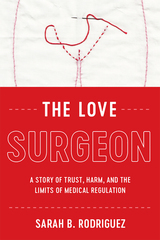
It would be easy to dismiss Dr. Burt as a monstrous aberration, a modern-day Dr. Frankenstein. Yet as medical historian Sarah Rodriguez reveals, that’s not the whole story. The Love Surgeon asks tough questions about Burt’s heinous acts and what they reveal about the failures of the medical establishment: How was he able to perform an untested surgical procedure? Why wasn’t he obliged to get informed consent from his patients? And why did it take his peers so long to take action?
The Love Surgeon is both a medical horror story and a cautionary tale about the limits of professional self-regulation.
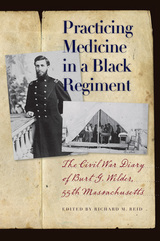
Burt Green Wilder, a Boston-born, Harvard-educated doctor-in-training, was among the first white officers commissioned to staff the 55th Massachusetts. Like other officers serving in the state's African American units, Wilder was selected for his military experience, his "firm Anti-Slavery principles," and his faith in the value of black troops. From the time he joined the 55th in May 1863 until the regiment was discharged in September 1865, Wilder recorded his experiences and observations. He described the day-to-day activities of a Civil War surgeon, the indignities suffered by black enlisted men at the hands of a War Department that denied them the same treatment offered to white troops, and the role of the regiment in the campaign around Charleston and in Florida.
Service in the southern states also allowed Wilder to indulge a passion for natural science and comparative anatomy, including the collection of unusual species, one of which—the spider known as Nephila wilderi—still bears his name. After the war he completed his medical studies at Harvard and joined the faculty of Cornell University, where he became a distinguished professor of zoology as well as an outspoken advocate of racial equality.
In his introduction to the volume, Richard M. Reid analyzes Burt Wilder's diary and places it within the context of the war, the experience of African American troops, and Wilder's life and career.
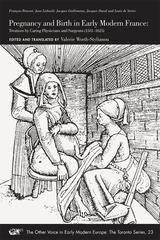
—Gianna Pomata
Professor of the History of Medicine, Johns Hopkins University
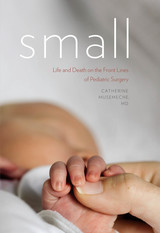
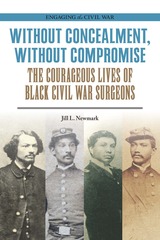
Of some twelve thousand Union Civil War surgeons, only fourteen were Black men. This book is the first-ever comprehensive exploration of their lives and service. Jill L. Newmark’s outstanding research uncovers stories hidden for more than 150 years, illuminating the unique experiences of proud, patriotic men who fought racism and discrimination to attend medical school and serve with the U.S. military. Their efforts and actions influenced societal change and forged new pathways for African Americans.
Individual biographies bring to light Alexander T. Augusta, who challenged discriminatory laws; William P. Powell Jr., who pursued a military pension for twenty-five years; Anderson R. Abbott, a friend of Elizabeth Keckley’s; John van Surly DeGrasse, the only Black surgeon to serve on the battlefield; John H. Rapier Jr., an international traveler; Richard H. Greene, the only Black surgeon known to have served in the Navy; Willis R. Revels, a preacher; Benjamin A. Boseman, a politician and postmaster; and Charles B. Purvis, who taught at Howard University. Information was limited for five other men, all of whom broke educational barriers by attending medical schools in the United States: Cortlandt Van Rensselaer Creed, William B. Ellis, Alpheus W. Tucker, Joseph Dennis Harris, and Charles H. Taylor.
Newmark presents all available information about the surgeons’ early lives, influences, education, Civil War service, and post-war experiences. Many of the stories overlap, as did the lives of the men. Each man, through his service as a surgeon during the war and his lifelong activism for freedom, justice, and equality, became a catalyst of change and a symbol of an emancipated future.
READERS
Browse our collection.
PUBLISHERS
See BiblioVault's publisher services.
STUDENT SERVICES
Files for college accessibility offices.
UChicago Accessibility Resources
home | accessibility | search | about | contact us
BiblioVault ® 2001 - 2024
The University of Chicago Press









